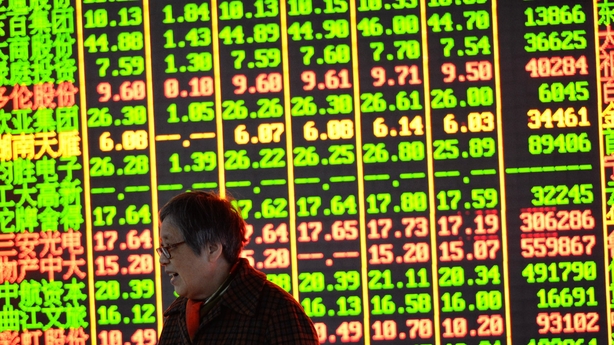Chinese stocks fell again today, taking little comfort from support measures announced by Beijing and unnerved by Chinese Premier Li Keqiang's failure to mention the market chaos in a statement on the economy.
Before the market opened, Li said that China had the confidence and ability to deal with challenges faced by its economy.
But he had nothing to say on the three-week plunge that has knocked around 30% off Chinese shares since the middle of June.
China's benchmark Shanghai stock index closed down 1.3% today, narrowing earlier losses, while the Shenzhen Composite index, which tracks stocks on China's second exchange, slumped 5.3%.
Analysts said government measures were not strong enough to reverse the downtrend, especially as it was a liquidity issue for many who had borrowed to buy shares and were now forced to sell to meet margin calls.
Global investors have grown increasingly concerned about China's volatile stock markets, fearing a full-blown crash could destabilise the world's second-biggest economy.
Commodities markets are also taking fright at what the slump says about the underlying economy, with prices of copper, natural gas and iron ore falling back toward their 2015 lows.
In an attempt to stop the sell-off, China has arranged a curb on new share issues and orchestrated brokerages and fund managers to promise to buy at least 120 billion yuan of stocks.
They would be helped by China's state-backed margin finance company, which in turn has a direct line of liquidity from the central bank.
The official Shanghai Securities News said today that China's major insurance firms ploughed tens of billions of yuan into blue-chip exchange-traded funds (ETF) and large caps yesterday.
Unlike other major stock markets, which are dominated by professional money managers, retail investors account for around 85% of trading in China, which contributes to the volatility of Chinese equities.

Traders are increasingly nervous about the unusually large number of Chinese companies asking for their shares to be suspended from trading, fearing that many of them are looking for excuses to duck out of the market turmoil.
About a quarter of the roughly 2,800 companies listed in Shanghai and Shenzhen had filed for a trading halt by yesterday's close, and the Securities Times said another 200 had announced a suspension today.
The rapid decline of China's previously booming stock market, which had more than doubled in the year to mid-June, is a major headache for President Xi Jinping and China's top leaders, who are already struggling to avert a sharper economic slowdown.
A surprise interest-rate cut by the central bank at the end of June, relaxations in margin trading and other "stability measures" did little to calm investors.

